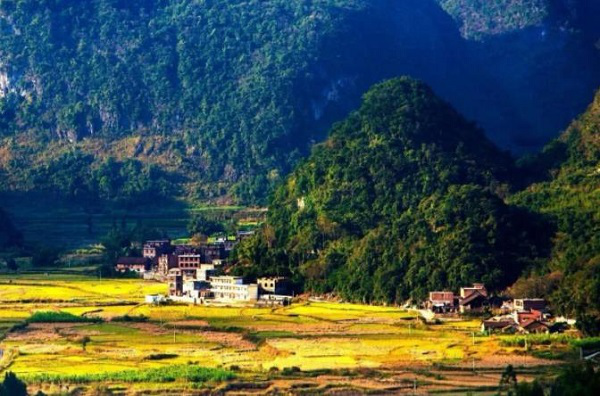Maonan ethnic culture

A photo of the living environment of the Maonan ethnic group in Hechi. [Photo/gh_451d26769981]
The Maonan ethnic group is one of the less populated mountain ethnic groups in China, mainly living in Huanjiang Maonan autonomous county of Hechi, Guangxi Zhuang autonomous region.
The Maonan people usually live together by their families. Many mountainous villages only have six or seven households, while villages of more than 10 households to dozens of households settle on flat ground. The houses in the village are scattered and are generally not adjacent to each other.
Members of the Maonan ethnic group prefer mud-tiled houses with stone foundations. Terraces are built in the front side of the house by a stone, bamboo or wooden frame for cooling and drying clothes. Every house has a central room, which is the living space of the old-style dwellings with three main functions of family living, paying tribute to gods, and receiving guests. The central rooms are usually made of wooden boards, with statues of gods and ancestral tablets placed in them.
The traditional marriage ceremony of the Maonan ethnic group is both intricate and chic. The weddings of the Maonan ethnic group are divided into two types: "female weddings" and "male weddings". The "female wedding" is small in scale and has very simple procedures. It is typical for normal families. The "male wedding" has a large scale and large wedding reception teams. It is usually only held by wealthy families.
The traditional funeral of the Maonan people are generally burials. Ancestral tablets of normal elders are put in the central room after their death. Deceased people under 35 years of age, regardless of whether they have children or not, cannot be placed as ancestors.














